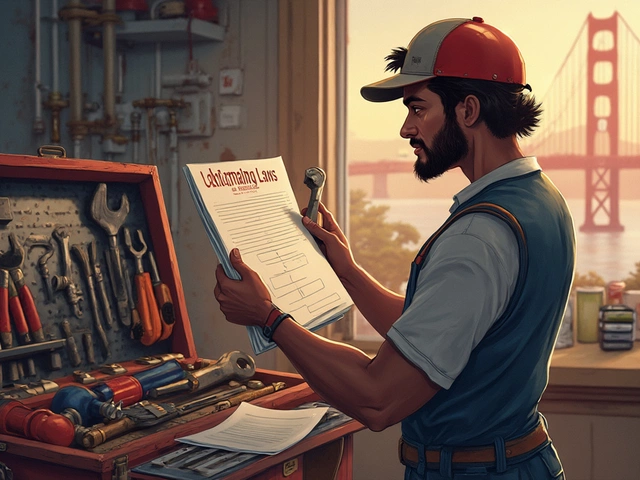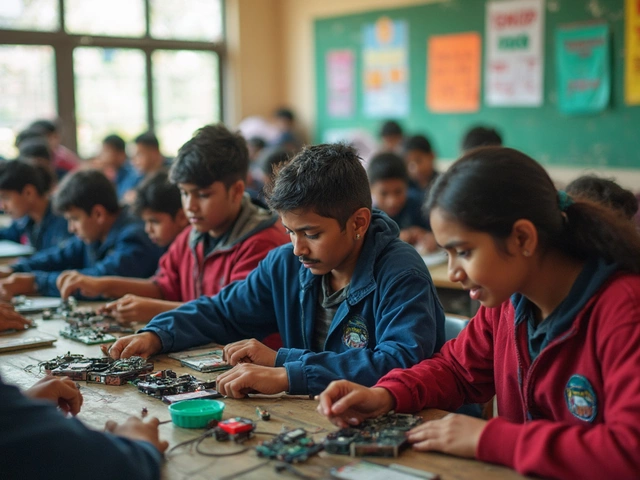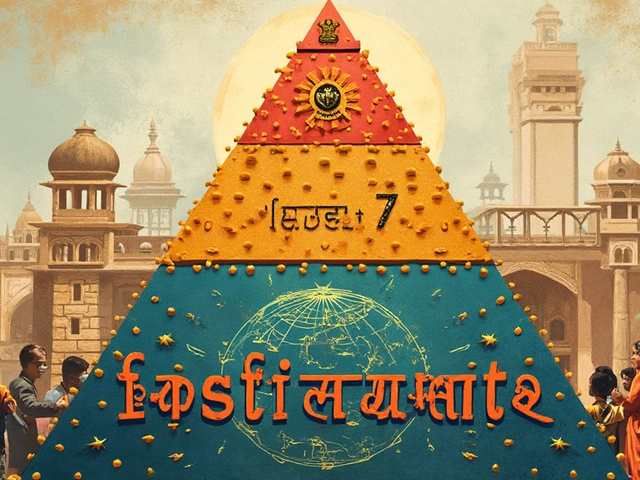So you're curious about diploma courses in India, right? Maybe you’ve heard they're a quicker path to kickstart a career, or perhaps someone mentioned they get you real-world skills fast. Whatever the reason, let’s get into what these courses are all about.
A diploma course is kind of like a shortcut. Instead of spending years in a classic degree program, you can dive straight into the juicy, practical knowledge. In India, diplomas usually focus on specific skill sets, helping you gain expertise in areas like engineering, design, or hospitality. These courses are more hands-on, perfectly tailored for those who want to be job-ready without the fuss of a lengthy academic commitment.
The cool part? These programs can take as little as six months to two years to complete. So, you’re not stuck in school forever but still come out with something valuable—skills that matter. They’re also flexible, with options for different fields. So if you're thinking about making a quick switch or leveling up in your current job, a diploma might just be the boost you need.
- What is a Diploma Course?
- Benefits of Diploma Courses
- Popular Fields for Diploma Courses
- Choosing the Right Diploma Course
- Top Institutions for Diploma Courses
- Tips for Success in a Diploma Program
What is a Diploma Course?
Alright, let’s break down what a diploma course really is. In India, these courses are like express trains to a career. Instead of the usual three or four-year degree programs, a diploma packs everything you need into a much shorter time, usually between six months to two years.
These courses are all about honing practical skills. That means you're not just filling your head with theories; you’re actually getting hands-on experience. This makes diploma courses super popular for fields that require specific expertise quickly, like engineering, graphic design, or even hospitality.
Here's something neat: many diploma programs in India are recognized by technical education boards, which gives them the stamp of legitimacy. This means that once you finish, your qualification is respected by employers in various sectors. Plus, if you're already working, diplomas can be a great way to boost your skills without taking too much time off your job.
Diplomas are a hit because they align closely with industry needs. The curriculum is often built around what’s in demand, so that when you step out, you're exactly what employers are looking for. Imagine jumping straight into a role with a solid understanding of what you’re doing, rather than sitting through endless layers of abstract theory.
Here's a quick look at how these courses usually compare to typical degrees:
| Aspect | Diploma Course | Traditional Degree |
|---|---|---|
| Duration | 6 months - 2 years | 3 - 4 years |
| Focus | Practical skills | Theoretical knowledge |
| Flexibility | High, with options for part-time | Less flexible |
So, if you're itching to get into the workforce or wanting to sharpen up a specific skill, a diploma might just be the perfect fit for you. They're efficient, focused, and align perfectly with real-world job expectations.
Benefits of Diploma Courses
Thinking about diving into a diploma course? Well, you're looking in the right direction! These courses offer some sweet perks that can make a real difference in your career path. First off, the biggest appeal is the time factor. Unlike a traditional degree that might take three to four years, diploma courses in India often wrap up within a year or two. That means faster entry into the job market.
And because diplomas are usually focused on hands-on skills, they prepare you better for real-world tasks. Say you choose a diploma in hospitality; you'll learn precisely what you need to thrive in that field—no unnecessary fluff. This practical approach often translates directly into job opportunities right after you finish.
Plus, let's talk about cost. Diploma programs tend to be easier on the wallet compared to full-fledged degrees. With the reduced duration and sometimes fewer course fees, it's a fewer financial burden while still setting you up for success.
Did you know that certain diploma courses also offer on-the-job training? Yep, some programs include internships, giving you a taste of the industry before you even graduate. This experience can be a game-changer, making your resume stand out when job hunting.
For folks looking to switch fields or upskill, diplomas offer flexibility that’s hard to beat. Whether you’re into technology, design, healthcare, or even culinary arts, there’s likely a diploma course waiting to sharpen your expertise.
Here’s a quick peek at some popular fields:
- Engineering: From civil to electrical, these programs provide the technical skills you need.
- Design: Graphic and interior design diplomas hone your creative flair with practical knowledge.
- IT: Courses here keep you updated with the latest tech skills.
Want more structure? Here's how some colleges are offering it:
| Institution | Course Length | Notable Feature |
|---|---|---|
| College A | 1 year | Includes internship |
| College B | 2 years | Online options available |
| College C | Evening classes | For working professionals |
So, if you're all about getting practical skills fast and not spending a ton of time or money, a diploma course might just be your golden ticket.
Popular Fields for Diploma Courses
Thinking about which field to choose? There's a bunch of diploma courses in India, each catering to different interests and career paths. Here's a sneak peek into some of the most popular ones:
Engineering diplomas are top picks, especially in areas like mechanical, civil, and electrical. They’re perfect if you want to dive into technical skills fast. These diplomas typically offer courses in places like polytechnic institutes and provide solid foundational knowledge crucial for technical jobs. All without the long haul of a full-fledged engineering degree!
Then there's the health and nursing sector. Diplomas in nursing and pharmacy pave the way for healthcare careers. With the demand for healthcare professionals always high, these programs offer awesome job prospects. Plus, they prepare you for real-life situations with loads of practical experience.
If you're leaning toward the creative side, look into design and animation diplomas. These programs cover everything from graphic design to animation and multimedia. As more media and tech companies pop up, the need for skilled designers is skyrocketing.
Hospitality management is another thriving area. India's tourism is booming, and so are opportunities in this field. Diplomas in hotel management, culinary arts, and travel management land you jobs in top hotels or even set the stage for starting your own venture.
Lastly, consider IT and software development diplomas. Everyone’s talking about tech these days, and these programs teach you coding languages, software skills, and more. Whether you want to work for a tech giant or start your own app, these courses build a great foundation.
This table sums up the duration and some common career paths for these fields:
| Field | Typical Duration | Potential Careers |
|---|---|---|
| Engineering | 1-3 years | Technician, Junior Engineer |
| Nursing | 1-2 years | Registered Nurse, Healthcare Assistant |
| Design and Animation | 1-2 years | Graphic Designer, Animator |
| Hospitality Management | 1-2 years | Hotel Manager, Chef |
| IT and Software | 1-2 years | Software Developer, IT Support |
Choosing the right field depends on your interests and career goals. So, what's catching your eye?

Choosing the Right Diploma Course
Picking the right diploma course in India can feel like a big deal, and honestly, it kind of is. You want to make sure what you choose lines up with both your career goals and personal interests. With so many options out there, how do you even begin to narrow it down?
First off, consider what you're genuinely interested in. Passion often translates into better motivation and performance. If you love tinkering with gadgets, a diploma in electronics might be your thing. Into art? Maybe a design-focused course is right up your alley.
Next, think about the job prospects. Research which sectors are booming and have a high demand for skilled professionals. Industries like healthcare, technology, and hospitality are often safe bets and offer solid career paths. Check if the course you like has a good track record of landing students in jobs or advancing their careers.
- Research online: Most institutions have websites where you can find out all the details you need, like the curriculum, faculty, and success stories from alumni.
- Talk to current students or graduates: Getting firsthand insights can help you understand what to expect and any challenges you might face.
- Check course accreditation: Make sure the diploma is recognized by relevant industry bodies or educational boards. This recognition often dictates the value of your diploma in the job market.
Finally, weigh the costs against your budget. Diploma courses are usually cheaper than degree programs, but fees can vary wildly. Some institutions offer scholarships or payment plans, so definitely explore those options if needed.
By considering these factors carefully, you’re more likely to choose a diploma course that will not only educate you but also pave the way to a career you’re excited about.
Top Institutions for Diploma Courses
Thinking about where to pursue your diploma courses in India? There are some pretty outstanding institutions that can give you the skills and reputation you’re after. Let's break down some of the top picks, so you know where you might want to apply.
First up is the Indian Institutes of Technology (IITs). Now, these are usually known for their degree programs, but they offer top-notch diploma courses in fields like engineering. If you love tech and want that solid brand name on your résumé, check them out.
Then there's the National Institute of Fashion Technology (NIFT). Into fashion? NIFT's diploma programs are well-regarded. Whether you fancy becoming a designer or want to dive into fashion management, their courses are hands-on and industry-focused.
Another great choice is the Institute of Hotel Management (IHM). If hospitality is your thing, IHM has you covered with diploma courses in hotel management that combine classroom learning with practical experience. The hospitality industry is a booming area to grow your career, and IHMs have a strong rep.
Don’t forget about the Centre for Development of Advanced Computing (CDAC). It offers advanced diplomas in IT and electronics that are great if you’re tech-savvy and want a fast track into the industry.
If you’re looking for diversity in course offerings, check out community colleges or polytechnics spread across states like Maharashtra and Tamil Nadu. They might not be as famous, but they offer a broad range of diploma courses at a fraction of the cost.
Want some numbers to consider? Here's a quick look:
| Institution | No. of Diploma Courses | Popular Field |
|---|---|---|
| IITs | 10 | Engineering |
| NIFT | 5 | Fashion |
| IHM | 7 | Hospitality |
| CDAC | 8 | IT & Electronics |
These institutions have built a reputation over the years. Whether you're eyeing tech, fashion, hospitality, or something else entirely, these places can provide the support and the stepping stone you need for your future career. Choose wisely and align your choice with your interests and career goals.
Tips for Success in a Diploma Program
Alright, so you've signed up for a diploma course in India, or you're thinking about it. How do you make sure you crush it? Here are some tried-and-true tips to help you ace that program.
1. Stay Organized: Diploma courses can be fast-paced. Use planners or digital tools to track assignments and deadlines. Keeping everything in check means no last-minute panics.
2. Focus on Practical Learning: Unlike other courses, diplomas are all about practical skills. Dive into projects and hands-on work; that's where you'll learn the most.
3. Network: Connect with classmates and instructors. They're your go-to resources for advice, study groups, and maybe even future job leads.
"The connections you build during your diploma can be as valuable as the diploma itself." - Deepak Kumar, Education Consultant
4. Use Resources Wisely: Colleges offer plenty of resources, from labs to libraries. Make full use of them to enrich your learning and projects.
5. Seek Feedback: Don't wait for exams to know where you stand. Regular feedback from peers and mentors can guide you to improve continuously.
- Regular self-assessment: Keep checking your understanding and skills as you go.
- Ask for guidance: Don't shy away from reaching out for help. Better to ask now than struggle later.
6. Balance Work and Study: If you're juggling a job with your studies, set clear boundaries and schedule time wisely to avoid burnout.
Finally, remember to enjoy the journey. You're learning skills that can open new doors and lead to exciting opportunities in the workforce. Keep your focus sharp and your energy high, and you'll likely find success in your diploma program.





Write a comment